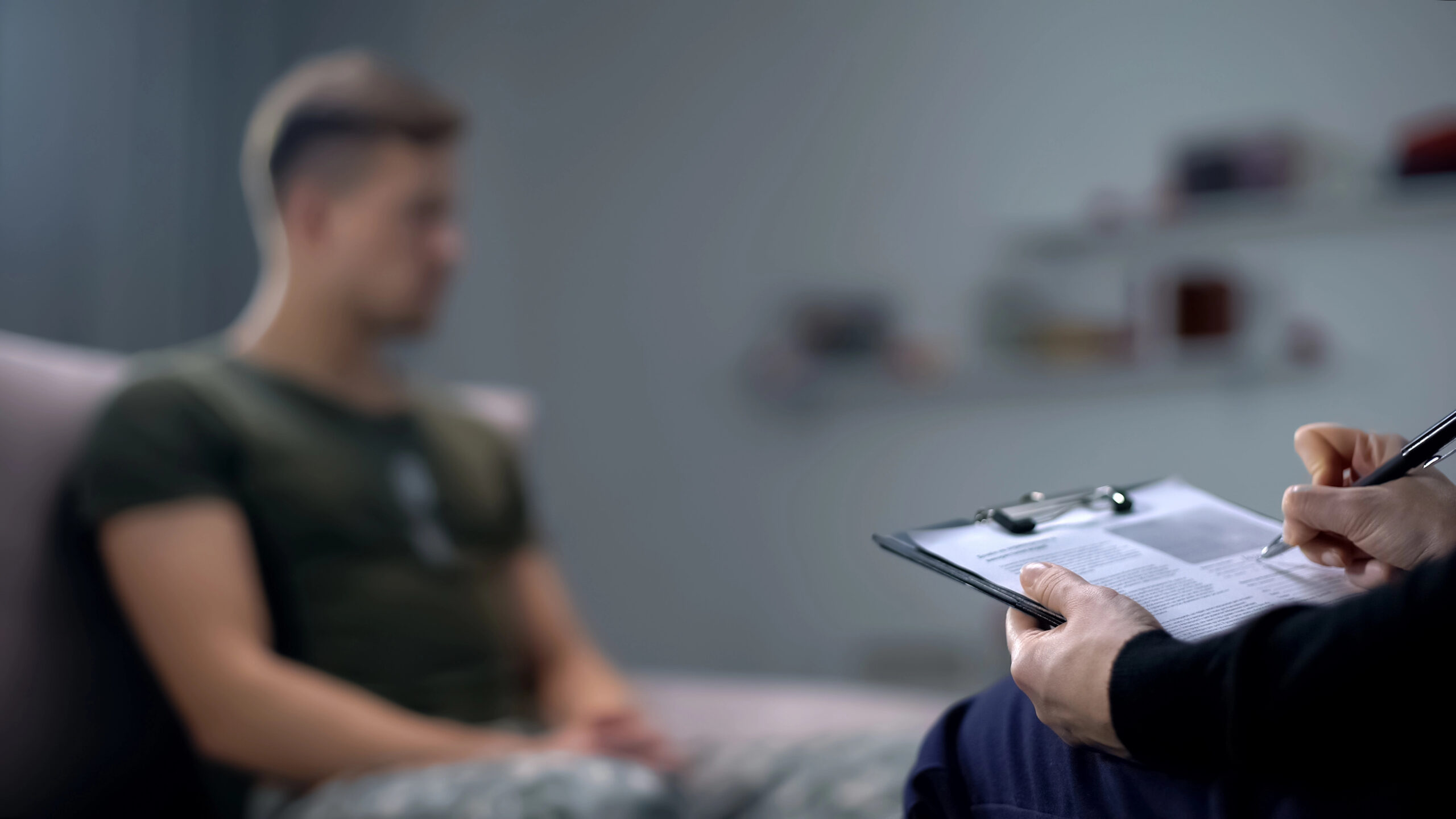Each year, August 31 is International Overdose Awareness Day (IOAD). This global event began in 2001 as a way to bring awareness to the issue of alcohol and drug overdoses, an ongoing public health threat.
Though the event began in St. Kida, Melbourne, it quickly caught on in other nations around the world. Today, it is the world’s largest annual campaign for overdose and recovery awareness.
Organizations and allies work together to shed light on the issue of overdose rates and help put resources in the hands of more people to reduce the amount of overdose deaths.
In North America, Overdose Awareness Day is recognized by holding awareness day events, sharing resources on overdose education, and other ways.
Here are 5 different ways you could show your support for International Overdose Awareness Day 2025.
1. Join an Overdose Awareness Day Social Media Group
There are a number of overdose awareness groups across multiple social media platforms. These groups share information on:
- Addiction (substance use disorders)
- Where to find overdose kits
- How to use naloxone (Narcan) overdose reversal sprays
- Awareness day events and where to find them
They also bring together thousands of people who have a common interest in helping decrease the overdose rate and help people find lasting addiction recovery.
Joining one of these awareness support groups can help you learn more about the risks of overdose, signs of overdose, how to respond, and how you can continue to show your support.
2. Start Conversations about Overdose Prevention
One of the best ways to raise awareness about the importance of reducing overdoses is to talk about this issue.
Talk with friends, family members, and other loved ones. Talk about overdose risks at work, at school, in your outings.
Many people shy away from the topic because it’s uncomfortable or makes them feel bad. But without talking about topics like harm reduction, the dangers of opioid overdose, and how to improve your behavioral health and end addiction — the issue will remain the same.
Look up facts to share to start a conversation. This can help you transition into talking about becoming an overdose prevention advocate by carrying naloxone with you, learning how to use it, and becoming an addiction recovery ally.
Here are some tips to get you started:
- Try starting with a hopeful fact, like “Did you read about how drug overdose deaths involving heroin have decreased in the past few years?”
- Stress the need for continued work by stating that though heroin overdose deaths have trended downward, the overall overdose death rates in the U.S. are still on the rise.
- Explain that overdoses will not end until we help more people reach recovery. Overdoses are part of a larger problem — alcohol addiction and drug addiction. Until more people reach lasting recovery, overdose rates will continue to rise.
- Share what you learned about preventing overdose, such as where to get a naloxone kit, any tips for how to use them, support groups, and more.
3. Become an Overdose Awareness Advocate
Advocating for overdose awareness means showing your support not only for overdose victims, but for the people battling substance use issues who are at risk.
The International Overdose Awareness Day campaign offers a range of ways to participate as an advocate.
Here are just a few:
- Attend an event: According to the organization, there were more than 780 events held in 27 different countries in 2023 for overdose awareness.
- Share a tribute: You may be interested in becoming an advocate because one of your loved ones battles or lost the battle with opioid use disorder or another form of addiction. So, you could post on social media about how important this day is to you and how you show recovery support for your loved one and others.
- Show your support: There are a range of different ways to show support as an advocate, such as sharing helplines for recovery support services on your social media pages, sharing about the risks and dangers of illicit drugs, and offering donations to the organizations fighting the overdose and opioid epidemic.
You can also find toolkits for overdose through the Centers for Disease Control and Prevention (CDC).
4. Learn All You Can About Overdose Risks & Dangers
First, it’s important to understand that not all drugs cause overdose. Second, overdose often involves more than one substance.
While opioid overdoses are some of the most common (and led to the opioid crisis), they are not the only substances responsible for overdose deaths.
Here are some of the most common illicit drugs that lead to overdose:
- Opioids like heroin, fentanyl, and Percocet
- Alcohol, though overdose on alcohol is more commonly known as alcohol poisoning
- Stimulants, or drugs that increase risk of heart attack, seizures, and stroke, like amphetamines
- Benzodiazepines, like Xanax and Valium
- Barbiturates, another depressant and an older class of drugs
Of these drugs, opioids and alcohol tend to lead to the highest risk of overdose. It’s also important to know how to find treatment services for people who overdose.
People who overdose — most of the time — are facing a substance use disorder. They likely will use substances and be at risk of overdosing again.
To find recovery services near you, search the Treatment Locator tool hosted by the Substance Abuse and Mental Health Services Administration (SAMHSA). This tool can show you treatment centers in your area and help you find the right health care for a loved one.
5. Consider Hosting a Local Overdose Awareness Day Event
The IOAD campaign is gaining ground in both North American cities and around the world. But more people need to get involved to help bring information to as many people as possible.
Holding a local overdose awareness day event is one impactful way you could help close to home. The IOAD website offers information on how to host an event.
You could get in touch with first responders in your area, perhaps ask them to do a demonstration of how to use naloxone, or do a question-answer session about overdose signs.
There’s no wrong way to show support for people battling drug or alcohol use, but helping educate people on how to respond to overdoses may just save a life.
Show Your Support for People Facing Overdose and Addiction
On International Overdose Awareness Day, people show their support for those at risk of overdose by learning about risks, sharing information, and implementing prevention methods.
But there’s a larger issue at hand: addiction. People face addiction every day, and of the most risky side effects is overdose. That’s why effective treatment for addiction is so important.
Here at Otter House Wellness, we offer a range of outpatient programs to help people manage their alcohol or drug use issues and lessen their risk of overdose.
Contact us to learn about our intensive treatment options and to find out how we can help.
Facility Staff
August 31, 2024
- Veterans and Military Mental Health Treatment Alexander County, NC
 In rural communities, mental health often stays hidden. Why are more veterans from Alexander County quietly seeking specialized care outside their hometown?
In rural communities, mental health often stays hidden. Why are more veterans from Alexander County quietly seeking specialized care outside their hometown? - Veterans and Military Mental Health Treatment Gaston County, NC
 More than 75% of post-9/11 veterans report pressure to appear “fine.” What happens when that pressure quietly turns into anxiety, withdrawal, or burnout in Gaston County?
More than 75% of post-9/11 veterans report pressure to appear “fine.” What happens when that pressure quietly turns into anxiety, withdrawal, or burnout in Gaston County? - Veterans and Military Mental Health Treatment Catawba County, NC
 Is a 15-minute VA check-in enough for complex trauma? Discover why some veterans are choosing a smaller, more personalized alternative.
Is a 15-minute VA check-in enough for complex trauma? Discover why some veterans are choosing a smaller, more personalized alternative. - Mental Health Outpatient Treatment Options Buncombe County, NC
 With nearly 50 suicides annually and rising youth risk, what is driving the mental health emergency in Buncombe County?
With nearly 50 suicides annually and rising youth risk, what is driving the mental health emergency in Buncombe County? - Mental Health Outpatient Treatment Options Forsyth County
 Residents average 4.4 poor mental health days each month. What’s driving the surge in emotional strain across Forsyth County?
Residents average 4.4 poor mental health days each month. What’s driving the surge in emotional strain across Forsyth County? - Veterans and Military Mental Health Treatment Mecklenburg County, NC
 You’ve mastered high-performance environments. But what happens when your nervous system won’t power down? Explore performance-based recovery designed for modern veterans.
You’ve mastered high-performance environments. But what happens when your nervous system won’t power down? Explore performance-based recovery designed for modern veterans. - Veterans and Military Mental Health Treatment Wake County NC
 Why are Wake County veterans driving three hours west for mental health care? Discover what a 16-person trauma program in the mountains offers that larger systems can’t.
Why are Wake County veterans driving three hours west for mental health care? Discover what a 16-person trauma program in the mountains offers that larger systems can’t. - Mental Health Outpatient Treatment Options Guilford County, NC
 Over 15% of adults in Guilford County have unmet mental health needs. What outpatient treatment options are available?
Over 15% of adults in Guilford County have unmet mental health needs. What outpatient treatment options are available? - Mental Health Outpatient Treatment Options Mecklenburg County, NC
 Over 100,000 residents need mental health support. Here’s how outpatient care in Mecklenburg County makes treatment more accessible.
Over 100,000 residents need mental health support. Here’s how outpatient care in Mecklenburg County makes treatment more accessible. - Mental Health Outpatient Treatment Options Wake County NC
 One in five North Carolina residents faces a diagnosable mental health condition each year. Discover why many still do not seek help… and how outpatient care in Wake County can close that gap.
One in five North Carolina residents faces a diagnosable mental health condition each year. Discover why many still do not seek help… and how outpatient care in Wake County can close that gap.
Recommended Blogs


Veterans and Military Mental Health Treatment Alexander County, NC
Unearthing Resilience: Why Alexander County Veterans Head West for Specialized Healing Alexander County is a…

Veterans and Military Mental Health Treatment Gaston County, NC
The Anchor’s Strength: Reinforcing Mental Wellness for Gaston County Veterans Gaston County is a place…

Veterans and Military Mental Health Treatment Catawba County, NC
The Industrious Soul: Strengthening Veteran Resilience in the Catawba Valley Is a 15-minute VA check-in…







